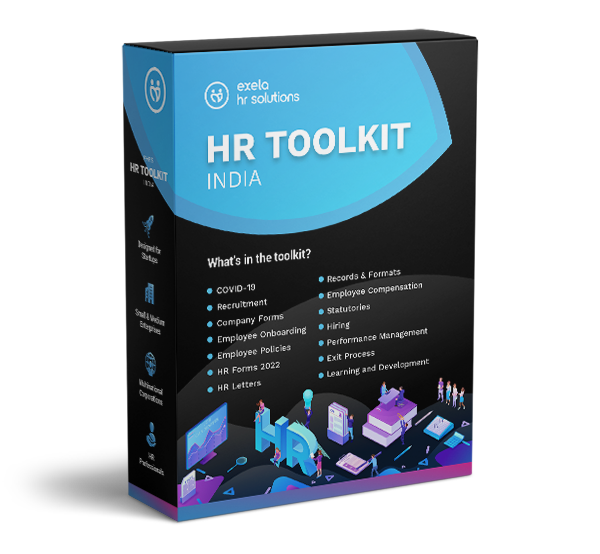
People often underestimate the extent to which they interact with Artificial Intelligence (AI) in their daily lives. Whether it's receiving personalized Google searches, Amazon's tailored product recommendations, getting weather updates from Alexa, or chatting with website chatbots, AI seamlessly integrates into our everyday experiences. One such realm where the true significance of AI becomes even more apparent is learning and development.
In today's dynamic business environment, learning and development (L&D) encompass more than just basic training. It involves creating a culture of continuous learning, improving employee performance, and equipping workers with new skills to adapt to changing demands. By offering engaging and valuable development opportunities, organizations can boost productivity, enhance employee retention, and foster a positive company culture. There are several reasons organizations today are investing in learning and development; here are a few:
- Acquiring and retaining talent
- Motivating and engaging employees
- Building an employer brand
- Creating a value-based culture
- Developing people capabilities
Now that the reasons to embrace the path to AI are clear, how do we use it to its full potential? Let's dive into the session below to learn more about ways AI is transforming learning and development, various aspects where AI influences learning and development, and future trends in it.
7 Ways How AI is Influencing Learning and Development
AI will revolutionize the training, learning, and development sector by optimizing and enhancing training methods. Here are seven ways AI is set to transform L&D:
- Personalizing the learning pathways
Personalized learning is crucial for catering to individuals' unique learning styles and information-processing methods. By taking these preferences into consideration, the effectiveness of the pedagogy process can be enhanced. AI plays a pivotal role in enabling training programs to customize content based on the specific needs of each employee. The benefits of AI in personalized learning are numerous, including:
- Time savings
- Increased engagement
- Automated learning processes
- Higher return on investment (ROI)
- Integrating training into the routine workflow
93% of organizations aim to incorporate learning into daily workflow. However, 56% of learning remains formal and face-to-face, leading to dissatisfaction among learners with training schedules and information delivery formats.
Artificial intelligence (AI) offers a solution, providing time savings, increased engagement, automated learning processes, and exponential organizational growth. AI-powered learning systems tailor programs, materials, and schedules to meet the unique needs of each employee.
-
Reinforcing training and development
Reinforcing training and development is essential to ensure effective application of knowledge. However, employees often face challenges in prioritizing their development due to time constraints and lack of motivation. In response, organizations make significant investments in employee development. AI-powered learning programs provide solutions by enhancing reinforcement efforts, including:
- Automation of time-consuming processes that saves time.
- Personalized learning and reinforcement to strengthen engagement and completion rates.
- Automated analytics measure learning effectiveness and provide valuable insights.
-
Improving completion rates
Only 15% of employees are prepared to finish their learning programs.
However, completion rates can be enhanced by utilizing Artificial Intelligence to deliver training content in the learner's preferred format and employing engaging reinforcement techniques. Here are four AI-driven tips to improve completion rates:
- To ensure effective learning, tailor programs to individual preferences.
- Create concise and captivating courses.
- Seek expert help to automate the learning platform.
- Measure effectiveness, report results, and consider rewarding employees for their progress
-
Providing accessibility
AI technology has made training programs more accessible to diverse groups of learners, including individuals with disabilities. For instance, Google introduced an Automatic Captions Video App in 2009, benefiting individuals with hearing impairment. Additionally, the app offers auto-translation features, allowing people to enjoy videos in over 50 languages. AI also aids blind individuals by generating alternative text for images. Google's Cloud Vision API utilizes neural networks to interpret image context and create textual descriptions. Consequently, AI enables experts to develop inclusive training programs accessible to all learners.
-
Measuring learning and training effectiveness
Utilizing AI systems significantly reduces the time and effort required to assess learning effectiveness. L&D professionals can swiftly collect and analyze data, gaining insights into learners' progress and identifying knowledge gaps. AI-powered learning programs can then offer tailored recommendations to address these gaps.
-
Focusing on AI-based digital tutors
AI-powered tutors have the potential to replace traditional educators and trainers. It has been evident that trainees working with AI-based tutors not only acquire skills rapidly but even outperform experienced professionals. This suggests that AI-based tutors could eventually replace current experts, resulting in a more efficient learning process.
Also Read: Team Building Tips to Improve Your Employee Morale by HR Management
Aspects where AI is Revolutionizing Learning and Development
Integrating AI into learning and development processes brings significant benefits and influences various aspects of the learning journey. Here are a few of those aspects:
- Learning platforms
Learning platforms play a critical role in facilitating online eLearning courses by providing in-app experiences that support employees throughout their learning journey. These platforms offer valuable resources, including FAQs and regular updates, to ensure a seamless and interactive learning experience for the workforce.
-
Virtual reality (VR)
AI-powered VR and AR technologies are transforming training and development. They create immersive and interactive simulations, allowing learners to practice real-life scenarios and acquire skills in a safe and engaging environment.
-
Knowledge sharing software
AI-powered knowledge-sharing software enables a seamless exchange of internal content among employees on a universally accessible platform within the organization.
-
Talent marketplace
The talent marketplace serves as a platform for organizations to share job roles, projects, and mentoring opportunities, while employees can showcase their skills and bid on these opportunities. Embracing a talent marketplace offers numerous advantages that can give your business and team a competitive edge.
-
Coaching
AI is reshaping the coaching aspect of learning and development by providing virtual coaching assistants, leveraging data-driven insights to offer personalized guidance, and facilitating continuous feedback. It enhances coaching effectiveness, scalability, and accessibility, transforming how individuals receive support and guidance in their learning and development journeys.
-
Mentoring
With intelligent algorithms and natural language processing, AI-powered mentoring platforms can provide personalized guidance, match mentors with mentees based on their needs, facilitate communication, and offer valuable insights for effective skill development and professional growth.
-
Individualized learning
This approach empowers employees to shape their future and establish personal learning goals proactively, addressing many employers' challenges in fostering employee accountability for learning. AI plays a supportive role by analyzing an individual's skills and desired trajectory and providing recommendations for skill development. On-demand learning enhances accessibility, allowing employees to set their own pace and minimize the risk of burnout. Additionally, AI enables managers to input performance review outcomes, allowing the AI system to evaluate areas for skill improvement to enhance employee performance.
-
Outside projects
Managers frequently encounter challenges when they require assistance on projects that demand expertise beyond their local staff's capabilities. This situation presents a unique opportunity for employees to broaden their skills while aiding the company in short-term endeavors. AI-driven talent marketplaces seamlessly connect managers in need with employees who are eager to acquire new skills, enabling efficient project completion.
-
Succession planning
In the face of evolving employee preferences, organizations must prioritize learning and growth opportunities to attract and retain top talent. To ensure smooth transitions and prevent talent gaps, companies implement robust succession plans. AI emerges as a vital asset in this process, enabling the identification of skilled individuals for specific positions and assessing employees' skill gaps. This allows for targeted skill-building initiatives to groom potential candidates for future leadership roles.
Future trends in learning and development
In the wake of the pandemic and the Great Resignation, businesses are increasingly realizing the critical role of learning and development in maintaining competitiveness within a tight labor market. As such, it becomes imperative to keep a watchful eye on future trends that are poised to reshape the landscape of learning and development.
-
Learning will be central to redefining the nature of work
Employers have faced challenges in recent years due to shifting priorities and labor shortages. To overcome these obstacles, companies are realizing the importance of continuous learning to enhance talent agility. By redefining work and learning within their organizations, businesses can adapt to evolving job demands and improve their resilience in the face of change.
-
Redefining the business value of learning and development
Companies are increasingly prioritizing the creation of a continuous learning culture, recognizing the interconnection between learning and work. As a result, they are expanding their learning and development programs, aligning them closely with organizational goals. This emphasis on learning's contribution to business value may lead to a rise in the presence of Chief Learning Officers (CLOs) in organizations.
-
Learning has an impact across the business
Learning and development initiatives are no longer confined to a single department but are transforming businesses as a whole. The focus is shifting towards a business-centric approach, emphasizing the integration of learning with overall workforce well-being, diversity, and inclusion.
-
New focus on remote learning
Remote work has become a permanent fixture. As employees experienced the benefits and employers recognized its profitability, remote work became a reality. Developing skills and prioritizing employee learning has become crucial with an expanded remote workforce. This has led to the rising popularity of new technologies to sustain remote learning.
It's a wrap!
AI has emerged as a highly promising technology with the potential to revolutionize the learning and development landscape. Numerous enterprises have recognized its value and made significant investments to leverage its benefits. We at Exela HR Solutions offer comprehensive solutions to help businesses seamlessly integrate AI into their learning and development initiatives. With our expertise in AI technology and a deep understanding of organizational needs, Exela HR Solutions can enable personalized learning, content creation, and skill development, revolutionizing the way businesses approach employee training and growth. Speak with our experts at Exela HR Solutions today!
DISCLAIMER: The information on this site is for general information purposes only and is not intended to serve as legal advice. Laws governing the subject matter may change quickly, and Exela cannot guarantee that all the information on this site is current or correct. Should you have specific legal questions about any of the information on this site, you should consult with a licensed attorney in your area.





